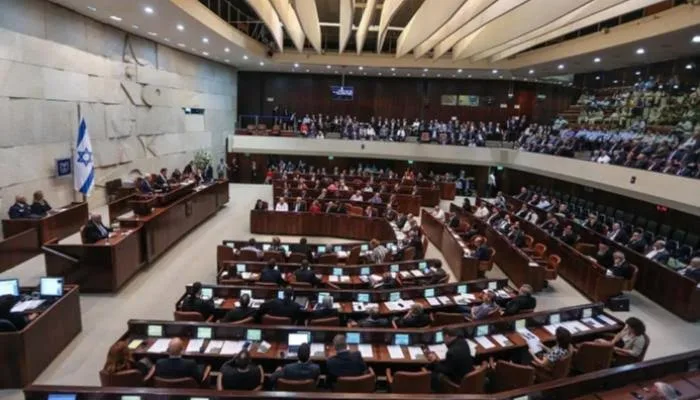Jerusalem | July 2025 – CJ Global Newspaper
In a move that has drawn widespread Palestinian and international condemnation, the Israeli Knesset voted in favor of a bill to extend Israeli sovereignty over large parts of the occupied West Bank and the Jordan Valley, marking a significant escalation with far-reaching political and legal implications.
The bill passed in a 64–52 vote, with support from the ruling coalition and right-wing parties, while left-wing and Arab lawmakers voiced strong opposition.
Supporters claim the legislation reaffirms Israel’s “historic and legal rights” to the territory, while critics view it as a de facto annexation that undermines any prospects for a two-state solution.
What the Bill Proposes
The proposed law, introduced by members of the Likud party and backed by far-right factions, includes the following provisions:
• Extending Israeli civil and legal jurisdiction to settlements and areas within the Jordan Valley.
• Eliminating legal distinctions between West Bank settlements and cities inside the Green Line (pre-1967 borders).
• Granting the Israeli military continued security control over Area C, but under direct Israeli civilian governance.
Analysts say the bill amounts to legalizing what has long been an on-the-ground reality—the creeping annexation of occupied territories through policy, infrastructure, and settler expansion.

Palestinian Authority: “Declaration of the Death of the Two-State Solution”
The Palestinian Authority condemned the move, calling it a “blatant violation of international law” and a “unilateral step that destroys any political horizon for negotiations.”
“This is an official declaration of the end of the two-state solution,” said PA spokesperson Nabil Abu Rudeineh. “We will take this matter to the United Nations and the International Criminal Court.”
Meanwhile, Hamas warned that the bill would not go unanswered, labeling it a “provocation that will ignite resistance across the West Bank and Gaza.”
⸻
International Reactions: Deep Concern and Legal Alarm
The United Nations and the European Union expressed “serious concern” over the bill.
The UN Secretary-General’s spokesperson reaffirmed that “unilateral actions to change the status of occupied territory are illegal under international law.”
Jordan’s Foreign Ministry issued a sharp statement, calling the bill “a direct threat to the peace treaty with Israel” and urging the international community to prevent the “forced transformation of facts on the ground.”
Analysts Warn of Legal Challenges and Escalation
Political analysts view the bill as a decisive step toward formal annexation of parts of the West Bank, potentially sparking legal challenges in Israel’s Supreme Court and heightened tensions on the ground.
Critics argue the move not only isolates Israel diplomatically but also fuels instability in a region already fraught with volatility, while emboldening further settlement expansion and displacement of Palestinians.
⸻
Reported by: Political Affairs Desk – CJ Global Newspaper
For full coverage and regional analysis, visit: https://castle-journal.com
